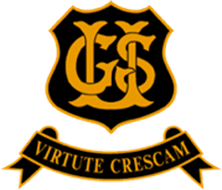{SECTION_MENU}
{LATEST_NEWS}
{DIARY_CALENDAR}
Chemistry
CHEMISTRY STAFF:
Mrs Pollock, Mrs Henderson, Mrs Campbell & Mr Thompson
Following on from the Science courses in the Broad General Education, pupils have the opportunity to choose discrete subjects within the Science Faculty from S3 onwards. Chemistry is one of these discrete Science subjects.
CHEMISTRY in the SENIOR PHASE
Everything we hear, see, smell, taste and touch involves chemistry and chemicals. Even the process of hearing, seeing, tasting and touching all involve complex series of chemical reactions and interactions within our own bodies. Chemistry is everywhere, and in order to understand the world around us, an understanding of chemistry at some level is crucial.
Within our chemistry courses we strive to produce responsible, well informed scientists who are enthusiastic to learn and can communicate their knowledge to others. Chemistry is a popular subject across all levels in Uddingston Grammar School. From our National 3 to National 5 chemistry courses, Higher and Advanced Higher courses, pupils will gain a grounding in chemical principles, while developing their capacity for abstract thinking, problem solving, scientific method and practical expertise.
- S3 Chemistry
- Chemical Changes and Structure
- S4 Chemistry
- Nature's Chemistry
- Chemistry in Society
- Higher Curriculum
- Chemical Changes and Structure
- Nature's Chemistry
- Chemistry in Society
At Higher level we further extend and refine our pupils understanding of the subject. The course starts with a consideration of collision theory and extend pupil's understanding of bonding and properties in the elements. In unit 2 pupil's skills in naming organic compounds are consolidated and their knowledge of homologous series is widened within real life applications. The final unit focuses on calculations in chemistry and their application, including Hess's Law, Le Chatelier's principle and the concept of excess. Again there are many opportunities for learning through practical experience.
- Advanced Higher Curriculum
- Inorganic and Physical Chemistry
- Organic Chemistry and Instrumental Analysis
- Researching Chemistry
Revision resources for all Chemistry students can be found at BBC Bitesize (Nat 5 Chemistry), BBC Bitesize (Higher Chemistry), as well as a host of resources which can be accessed through Glow including Scholar and Twig.
Support Class Information
The Support class for Chemistry takes place on a Wednesday
Star Groups for S4 run for National 5 candidates to support students in achieving success.
Google classroom groups
Useful links
Higher and advanced higher data booklet
National 4/5 Chemistry
Homework and summary notes for the National 4 and 5 chemistry courses can be found below. They are split into the three units you have covered in class.
Unit 1 - Chemical Changes and Structure
Unit 1a - Reaction rates
Unit 1b - Atomic structure and bonding part 1
Unit 1b1 - summary notes (part 1)
Unit 1b - Atomic structure and bonding part 2
Unit 1b2 - summary notes (part 2)
Unit 1b - Atomic structure and bonding part 3
Unit 1b3 - summary notes (part 3)
Unit 1c - Formulae and reaction quantities
Unit 1d & e - Energy changes & acids and alkalis
Unit 1d & e - Nat 4 homework 8
Unit 1d & e - Nat 4 homework 9
Unit 1d & e - Nat 5 homework 9
Unit 1d & e - Nat 5 homework 10
Unit 1d & e - Nat 5 homework 11
Unit 2 - Nature's Chemistry
Unit 2a - Fuels
Unit 2b - Hydrocarbons and homologous series
Unit 2c - Everyday consumer products
Unit 2c - summary notes Nat 5 only
Unit 2d - Plants to products
Unit 2e - Energy from fuels
Unit 3 - Chemistry in Society
Unit 3a - Metals and alloys
Unit 3b - Plastics and novel materials
Unit 3c - Fertilisers
Unit 3d - Nuclear chemistry
Unit 3e - Chemical analysis
National 5 past papers
Higher Chemistry
Unit 1 - Chemical Changes and Structure
Unit 2 - Nature's Chemistry
Unit 3 - Chemistry in Society
Unit 4 - Researching Chemistry


